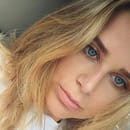I’ll start by saying I am grateful and proud to be a member of a generation that recognizes the injustices that plague our nation. And that we are strong enough to do something about it. We have been gifted a stolen country by our forefathers that is riddled with disparity and boasts an uneven playing field. In the wake of countless movements and calls for action, we are consistently begged to ask what is important to us, and what do we want our role to be in the movement.
The Background:
This past September, Hulu premiered a show called Woke based on the true life and experiences of cartoonist Keith Knight. The show starts as Knight lands his first major comic strip “Toast and Butter”. While stapling flyers in a bustling metro-area, he is body-slammed to the ground by a police officer. It is later revealed that Knight was, in fact, not the actual suspect in pursuit, he was simply a 6-foot-1 Black man. Racial identity, community responsibility, and social indifference quickly become the spine of this show.
Prior to this event, Keith insists that he knew of the racial disparities facing the Black community. He would agree with anyone who told him it was an issue, however; he also insists that “not everything has to be made into a racial issue”– until it became a racial issue. Throughout the season, we watch as Knight grapples with his racial “awakening” as his cartoons come to life and guide him through the process. Suddenly Knight is noticing his community gentrify right in front of his eyes and people telling him to “lighten up” carries a whole new meaning. The show is rich with examples of a Black man’s everyday struggles, from colorism in the workplace to Black tokenism.
The Breakdown:
For reference: I am a Black Latina who was lucky enough to be privileged in many aspects. I grew up in a suburb of Chicago where everyone was more or less financially equal. I was lucky enough to never have really faced blatant racism to my face (only the many, many microaggressions that I inevitably carry with me to this day– but I digress). I lived in a white suburban bubble where I knew racial inequality existed but thought that as long as I lived in this bubble, I was immune from it because “that couldn’t happen to me.” I never had a Woke-esque racial awakening, but as I got older and the injustices became more and more recurrent, I realized that the system does not care about my privileges. Just like Keith, if I fit the description, I could be the criminal.
In turn, what this did for me made me realize that what my privileges actually do is give me an opportunity to speak up about these issues on platforms that reach people of a variety of different backgrounds. All I can ask is that every person reading this recognizes their privilege and uses it for good. Police brutality, systemic oppression, racial inequity are not “Black Issues”, they are human issues.
Woke introduces the real, unapologetic Black experience without the sugar coating. Beyond that, it shows the transition from being willfully ignorant to readily activated. In America, we as citizens are put in a position where everything is political– everything has to be political. And I don’t mean this to be facetious, but our mere existence is political. It is no secret that the system does not and has never worked for any BIPOC. This has to end now. Nobody is in a position to be willfully ignorant anymore. Black people have been dying for our nation for centuries and it has to end now. How many more times will our government need to overtly refuse justice before we realize Black existence is not a crime?



